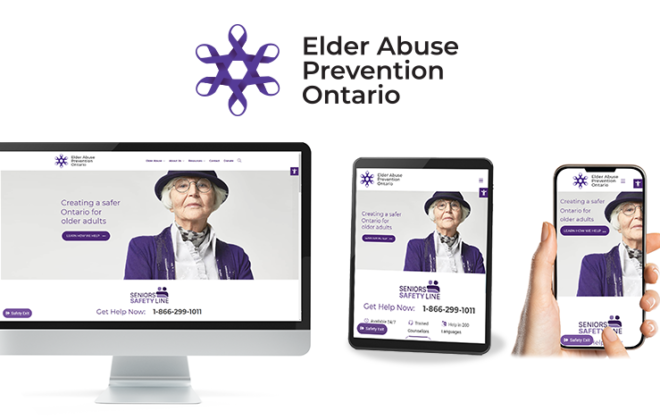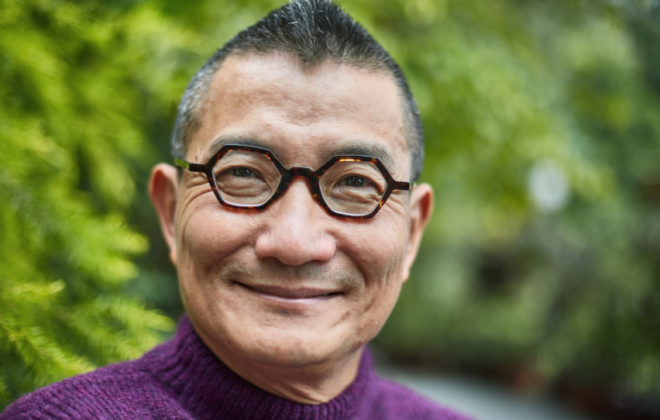Power of Attorney for Personal Care: Safeguard Wishes and Take Steps to Prevent Abuse
Elder Abuse Prevention Ontario in partnership with CLEO held an informative session to discuss key issues when creating a Power of Attorney for Personal Care. Powers of Attorney are legal documents that give another person the power to make certain decisions when a person is no longer able to make them on their own. Participants learned what is needed to help prevent abuse and protect wishes about healthcare, housing, and safety.
Participants learned how to use CLEO’s Power of Attorney Guided Pathway, an easy-to-use online tool that helps create a Power of Attorney.
Speaker:
Megan Stuckey, Lawyer with Advocacy North for Elders & Seniors and the Sudbury Community Legal Clinic
Corrections to Recording
Megan Stuckey our presenter on this webinar, has provided further clarification to 4 specific issues related to power of attorney for personal care. The amendments are in reference to points discussed at: 22:22, 23:22, and 40:07. While watching the recording, you may want to see the attached PDF or her clarifications.
Correction at 22:22
During the presentation at the 22.22 minute point in the recording on Mental Capacity to Consent to Treatment, our presenter, Megan Stucky discusses treatment decisions related to “presumed 16+”, and would like to “amended to “presumed” with the correction to the verbal presentation: Under the Health Care Consent Act, s. 4(2), an individual is presumed to have capacity to consent to treatment, regardless of age. Capacity to consent to personal care decisions is presumed in individuals 16+, under the Substitute Decisions Act, s. 2(2).
Correction at 23:22
At the 23:22 minute point in the recording on What is Capacity? the presenter would like to change, “Understand the reasonable foreseeable consequences” to amended to “appreciate the reasonable foreseeable consequences”
Correction at 40:07
At the 40:07 minute point in the recording on Can my Attorney be compensated for helping me? the presenter would like to amend “There is no specific provision for compensation of attorney for personal care in the Substitute Decision Act (there is for the attorney for property). However, your attorney may be compensated if stipulated in the POA.” The correction to verbal presentation is as follows: An attorney for personal care can be compensated if the grantor stipulates this in the POA.
Question Clarification
At 55:17 minute point in the recording on the reliability/ verifiability of the written instructions. The following amendment for further explanation: “Your Substitute Decision Maker is required to rely on any written instructions regarding your wishes for treatment or personal care, which will be interpreted in present context and not necessarily taken literally. The issue is ensuring that those written instructions can be verified as yours and confirmed as your last known wishes, if you are no longer able to verify them yourself.”
Download Presentation
Power of Attorney for Personal Care: Safeguard Wishes and Take Steps to Prevent Abuse
Corrections to Presentation
The PowerPoint slide titled “Preparing a Power of Attorney for Personal Care Safeguard wishes and prevent abuse” has been updated on January 24, 2023, to reflect the correction/updates listed below.
Slide (36) Mental Capacity to Consent to Treatment
treatment decisions related to “presumed 16+”, and would like to “amended to “presumed’
Slide 37, “Understand the reasonable foreseeable consequences” amended to “appreciate the reasonable foreseeable consequences”
Slide 49, Can my Attorney be compensated for helping me? Amended to “There is no specific provision for compensation of attorney for personal care in the Substitute Decision Act (there is for the attorney for property). Amendment : your attorney for personal care may be compensated if the grantor stipulates this in the POA.
Resources from Webinar
CLEO Resources
Power of Attorney for Personal Care
https://www.cleo.on.ca/en/publications/power
Community Advocacy and Legal Centre (CALC)
Tips Sheets (including POA, Financial abuse by a POA and Consider acting as a POA)
Trillium Health Partners
Guide to POA for Personal Care
EAPO’s Resources
Elder Abuse and Knowing Your Legal Rights
English
Provincial Directory Elder Abuse Support and Response Service Organizations
English
Help and Support for Older Adults Facing Abuse
English French
Starting the Conversation HOW TO ASK ABOUT ABUSE
English French
Websites
CLEO Connect
Ontario’s home for legal information training, tools, and resources for community workers.
www.cleoconnect.ca
CLEO’s Steps to Justice Your Guide to Law in Ontario
Power of Attorney for Personal Care
CLEO’s Guided Pathway to Preparing A Power Of Attorney
CLEO’s Guided Pathways offers interactive interviews to help you make powers of attorney. The Guided Pathways are free to use.
https://stepstojustice.ca/guided-pathways/wills-and-powers-of-attorney-preparing-a-power-of-attorney/
CLEO’s Guided Pathways Tools
Use CLEO’s free online interviews to fill out legal forms, draft letters, and identify your next steps. The Guided Pathways ask you questions and then use your answers to fill in the forms and letters you need. When you are done, you can save and print your papers.
French site
English site
Guided Pathway for Making a Will
CLEO’s Guided Pathways include an interactive interview to help you prepare a simple will. All of the pathways are free to use. You can use the pathways to:
- create a simple will, if you’re someone who has a small or modest amount of property;
- appoint an executor to pay your final bills, do your final tax return, and distribute the property in your estate.
Supports
Contact your local community legal clinic.
Find your local clinic or call 1-800-668-8258
Advocacy North for Elders and Seniors
(Northern Ontario only)
1-800-697-8719
Hosts the program Advocacy North for Elders and Seniors which provides legal advice and representation to low-income elders and seniors throughout Northern Ontario who have legal issues related to their age. Free and confidential advice is available with the following:
- Problems with community services and healthcare
- Supportive housing & long-term care homes
- Consent and capacity: powers of attorney, decision about capacity
- Physical, emotional or financial abuse
Advocacy Centre for the Elderly (ACE)
(for low-income seniors)
1-855-598-2656
ACE serves people 60 years of age and over in the Greater Toronto Area, and may also provide services to seniors outside of Toronto if the case is of significance to the seniors’ community. ACE also works with the local community clinics across the province to provide legal services to seniors living in these other locations.
ARCH Disability Law Centre
(specializes in disability rights law)
1-866-482-2724
ARCH Disability Law Centre is a specialty legal clinic that practices exclusively in disability rights law. ARCH also represents persons with disabilities and disability rights organizations in precedent-setting cases at various provincial and federal courts and tribunals, including the Human Rights Tribunal of Ontario, the Canadian Human Rights Commission, the Canadian Human Rights Tribunal, the Canadian Transportation Agency as well as appellate courts, including the Court of Appeal for Ontario, the Federal Court and Federal Court of Appeal, and the Supreme Court of Canada.
Law Society Referral Service
www.lsuc.on.ca/lsrs/
Connects people looking for legal assistance with a lawyer or paralegal. For anything from dealing with a traffic ticket to buying your first home, you can find a legal representative with LSRS. When you request a lawyer or paralegal referral online, LRS will give you the name of a lawyer or licensed paralegal who will provide a free consultation of up to 30 minutes to help you determine your rights and options, provided we have a match available. You can start the online process of obtaining a lawyer referral or paralegal referral at www.findlegalhelp.ca, 24 hours a day.
Office of the Public Guardian and Trustee (OPGT)
1-800-366-0335
- makes financial decisions for adults who have been found mentally incapable
- acts as Substitute Decision Maker (SDM) of last resort to make substitute treatment or long-term care admission decisions for incapable individuals
- holds funds in trust for minors and plaintiffs and defendants involved in a lawsuit
- administers estates when no one else is available to do so
- protects the public’s interest in charities and dissolved corporations
- provides other services to protect the financial, legal and personal care of mentally incapable Ontarians
If you suspect that a person may be incapable and at risk of harm, abuse or neglect, call the OPGT’s Investigations line at 416-327-6348.
Pro Bono Ontario hotline
1-855-255-7256
Pro Bono Ontario is a non-profit organization committed to helping Ontarians with their everyday civil legal needs. If you can’t afford a lawyer, call our Free Legal Advice Hotline for up to 30 minutes of free legal advice and assistance with civil law matters in Ontario (no family law, immigration or criminal).The Hotline accepts calls from Monday to Friday, 9:00 a.m. to 5:00 p.m.
The agency helps people in creating a Power of Attorney as well as answer legal questions about Powers of Attorney.
For support creating a Power of Attorney, call Monday to Friday mornings, from 9:00 AM to 1:00 PM.
South Asian Legal Clinic (SALCO)
416-487-6371
A legal clinic for low-income south Asians in Ontario and provides services in a number of areas of law including immigration, tenancy, employment, income supports, and other areas. On-site languages:English, Hindi, Urdu, Tamil, Punjabi and Kannada. Interpretation can be provided in: Gujarati, Malayalam and several other South Asian languages.




